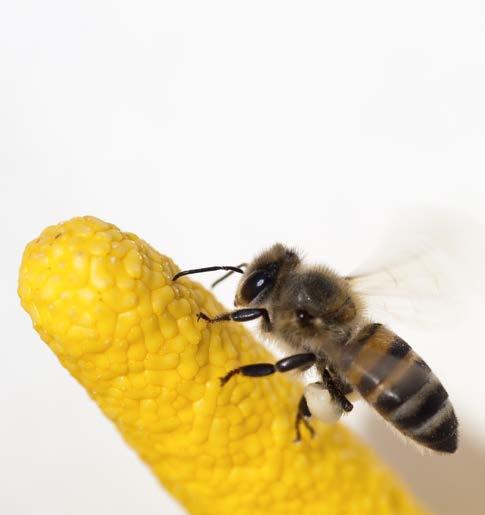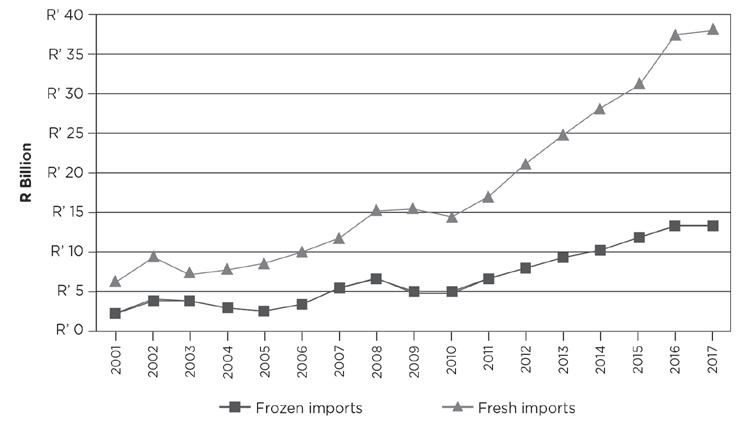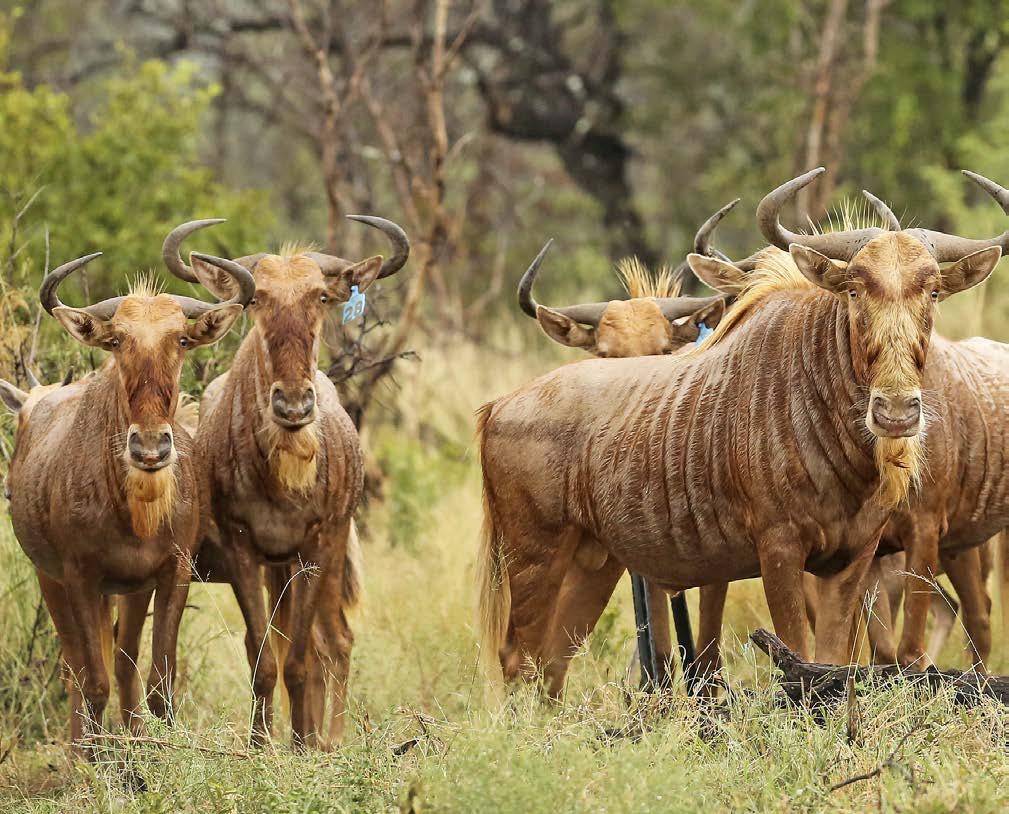
3 minute read
Creating a buzZ Save the honeybee population
by WCDOA pubs
TThe humble honeybee is as important to agriculture as water, land and air, and in South Africa over 50 different crops rely on them for pollination.

However, the bee industry has identified several problems affecting bees, and as the demand for food and therefore pollination is expected to grow in coming years, something needed to be done.

The department, working with bee associations in the Western Cape, has released a new strategy aimed at ensuring the sustainability of the province’s bee population.
In the Western Cape, 50% of commercial beekeepers’ revenue currently comes from pollination services, with the remaining 50% coming from the production of honey and other bee-related products.
The National Department of Agriculture, Forestry and Fisheries (DAFF) currently lists 130 000 managed colonies of bees and 1 800 beekeepers on their records. About 70 000 of the colonies are based in the Western Cape. However, the numbers are thought to be much larger, because of unregistered colonies and beekeepers.
According to Hortgro, the current pollination needs required by bee-dependent deciduous fruit crops are 65 000 pollination units – a demand currently being met. This is forecast to grow by at least another 30 000 units over the next decade due to new cultivars and growth in agriculture. The seed industry is also forecast to increase demand for pollination units by 30 000 over the next decade, and berry growers by another 20 000 units. In effect, the demand for pollination services is expected to double in the next decade.
Among the problems identified by the industry are insufficient forage, theft and vandalism, disease, environmental hazards such as pollution, and exposure to external factors such as fires and drought.
The new strategy aims to ensure the continued sustainability of the bee population by focussing on five key areas:
Ensuring sustainable bee forage; Research and innovation;
Developing a regulatory framework; Transformation in the industry; and Governance and stakeholders.
The single largest concern is that there will not be enough forage for bees in the Western Cape.
Sunflowers (Helianthus annuus) perform well when there is good pollination. To make sure that this is achieved many farmers hire bee hives from beekeepers to place in their sunflower lands which ensure their crop is well pollinated.

South Africa’s honeybee species rely on both indigenous and exotic species, like eucalyptus, flowering crops and suburban plants to provide forage sources year-round. One major problem is that eucalyptus has been targeted by DAFF’s Working for Water programme, because it is an alien invasive species. This has seen six species of the tree being targeted for removal, even in contexts where they pose no water threat.
The strategy proposes that a Bee Forage Commission be established, which will be composed of players from various provincial and national government departments as well as universities, and representatives from the bee industry.
Among the projects this commission will undertake will be the marketing of a plant book exploring bee-friendly plants, a campaign with nurseries to mark plants as “bee friendly” in much the same way some species are being marketed and sold as “water friendly”, and exploring the possibilities of a mass bee forage planting project.

Minister of Economic Opportunities, Alan Winde, said: “We need to take this strategy and turn it into reality because a properly regulated and managed industry has real potential to create new jobs and expand the economy. The report shows that in South Africa, we import a lot of honey. South Africa has imported 2 000 tonnes of honey annually since 2010, and honey production has dropped to 40% of what it was in the 1980s. This is an agri processing opportunity, to produce local honey and honey-related products right here in the Western Cape.”
Minister Winde said farmers and residents of the Western Cape should be encouraged to plant bee-friendly crops and plants to secure a continuous food source for these important insects.

“Bees are vital to our food security. This is a way for members of the general public to get involved and make a difference,” he said. AP
Bee Wise
Bee-friendly crops include:
• canola
• sunflowers
• lucerne
• pumpkins
• citrus
Bees prefer plants with flowers that are violet, blue, white or yellow and rely on smell to find them, so the home gardener can plant fragrant flowers and herbs such as:

• basil, dill, borage and coriander
• lavender
• fynbos plants such as proteas and ericas
• false olive
• spekboom
For more information, contact Bianca Capazorio: bianca.capazorio@westerncape.gov.za










